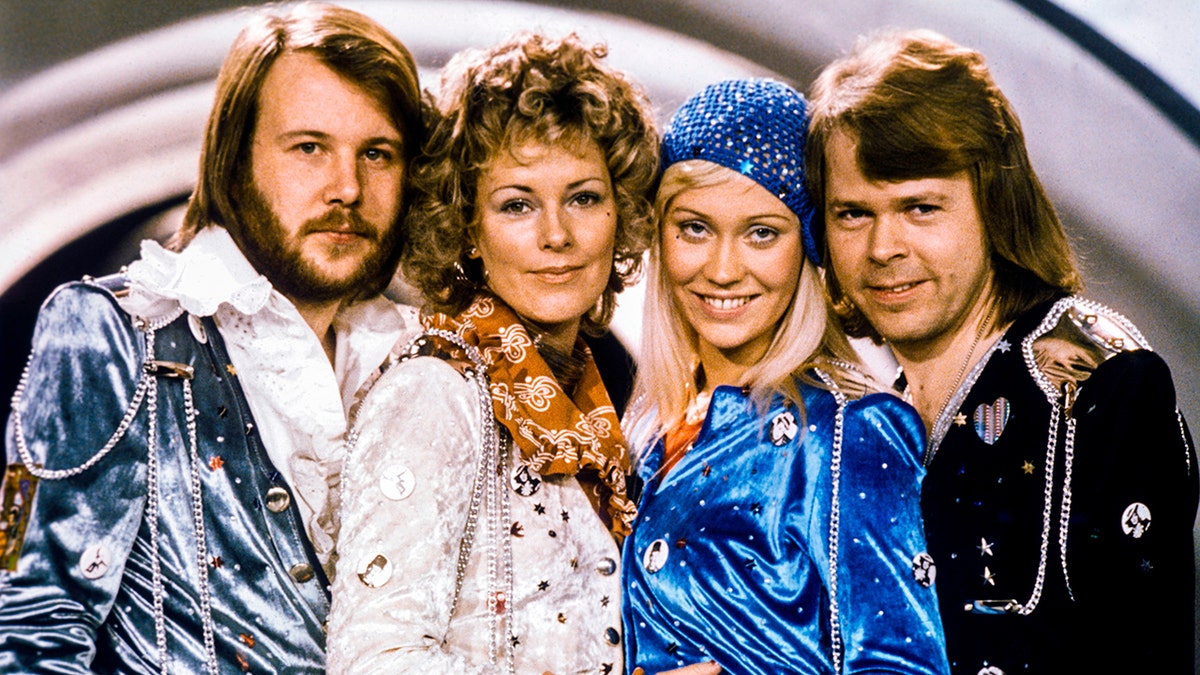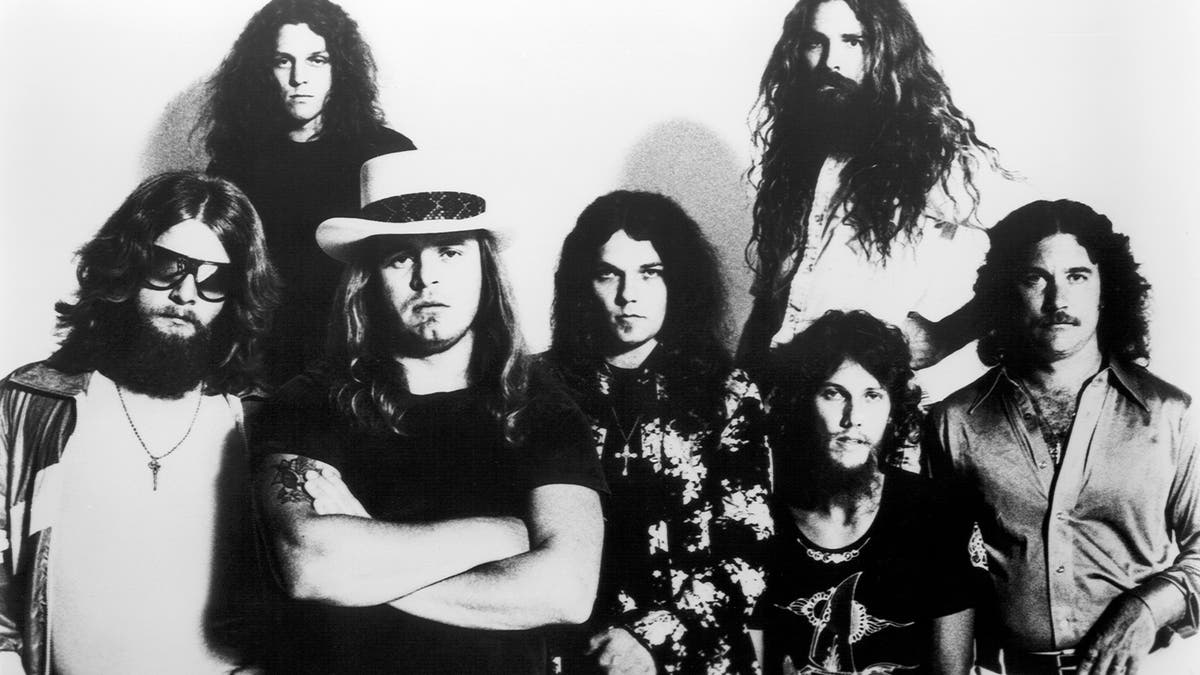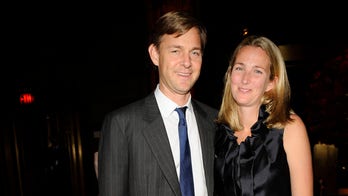Fox News Flash top entertainment headlines May 24
Fox News Flash top entertainment and celebrity headlines are here.
Many popular songs from the '70s, which are still listened to by all generations, are turning 50 this year.
Here are 10 tunes celebrating the 50th anniversary of their release in 1974.
Abba — "Waterloo"

The Abba song "Waterloo" won the Eurovision Song Contest in 1974 for Sweden. (Olle Lindeborg/AFP via Getty Images)
Abba's "Waterloo" was released in March 1974 as the first single off their second album of the same name.
The song won the Eurovision Song Contest in 1974 for Sweden, and put Abba on the map. It was also covered by the cast of both "Mamma Mia!" and "Mamma Mia! Here We Go Again."
Barry White — "Cant Get Enough of Your Love, Babe"

Barry White released "Can't Get Enough of Your Love, Babe" in June 1974 and it became an instant success. (ABC Photo Archives/Disney General Entertainment Content via Getty Images)
Barry White's "Can't Get Enough of Your Love, Babe" was released in June 1974, as the first single from his third album, "Can't Get Enough."
The song was an instant success, topping both the Billboard Hot 100 and Billboard R&B charts, and was certified gold. It has become one of his most well-known tunes.
David Bowie — "Rebel Rebel"

David Bowie released "Rebel Rebel" in the U.S. in May 1974. (Gijsbert Hanekroot/Redferns)
David Bowie's "Rebel Rebel" was the lead single from his eighth studio album, "Diamond Dogs."
It was released in February 1974 in the U.K., and in the U.S. a few months later, in May, and is often referred to as one of Bowie's greatest songs.
Redbone — "Come and Get Your Love"

Redbone's hit "Come and Get Your Love" was featured in the 2014 film "Guardians of the Galaxy." (Gijsbert Hanekroot/Redferns)
When "Come and Get Your Love" was released in January 1974, the band Redbone made history as the first Native American group to have a song in the top five on the Billboard Top 100 charts, peaking at No. 5.
The tune became popular among a new generation when it was featured in the 2014 film "Guardians of the Galaxy."
Carl Douglas — "Kung Fu Fighting"

"Kung Fu Fighting" is considered one of the greatest one-hit wonders of all time. (Colin Fuller/Redferns)
Jamaican musician Carl Douglas released "Kung Fu Fighting" in September 1974 as the first single from the album "Kung Fu Fighting and Other Great Love Songs."
It became one of the best-selling singles of all time, with sales of 11 million records worldwide. In 2002, VH1 placed the song as No. 100 on their list of "100 Greatest One-Hit Wonders."
Bachman–Turner Overdrive — "You Ain’t Seen Nothing Yet"

Bachman-Turner Overdrive's first and only No. 1 hit was "You Ain't Seen Nothing Yet." (Jorgen Angel/Redferns)
"You Ain't Seen Nothing Yet" became Bachman-Turner Overdrive's first, and only, single to reach No. 1 on the Billboard Hot 100 chart after its release in September 1974.
Despite its success, the song was never meant to be released, as it was written as a joke by Randy Bachman for his brother Gary, who had a stutter.
Lynyrd Skynyrd — "Sweet Home Alabama"

Lynyrd Skynyrd's "Sweet Home Alabama" partially inspired the 2002 film of the same name. (Michael Ochs Archives)
Lynyrd Skynyrd released "Sweet Home Alabama" in June 1974 as part of the band's second album, "Second Helping."
The song became the group's highest charting single, peaking at No. 8 on the Billboard Hot 100 chart. It later partially inspired the 2002 movie of the same name, starring Reese Witherspoon.
Elton John — "Bennie and the Jets"

"Bennie and the Jets" is one of Elton John's most popular songs. (Anwar Hussein/Getty Images)
"Bennie and the Jets" is one of Elton John's most popular songs, following its 1974 release off of the 1973 double album "Goodbye Yellow Brick Road."
In the first two years of its release, it sold more than 2.8 million copies, and since then it has been certified platinum in the U.S. and was ranked No. 371 on Rolling Stone's "500 Greatest Songs of All Time" list.
John Denver — "Annie’s Song"

John Denver wrote "Annie's Song" as a tribute to his wife at the time, Annie Martell. (David Warner Ellis/Redferns)
After John Denver released "Annie's Song" in June 1974, as the lead single from his album "Back Home Again," it reached No. 1 on the Billboard Hot 100, where it stayed for two weeks.
Denver wrote the song in 10 minutes as an ode to his wife at the time, Annie Martell, while on a ski lift.
Harry Chapin — "Cat's in the Cradle"

Harry Chapin's "Cat's in the Cradle" earned him a Grammy nomination. (Ann Limongello /Disney General Entertainment Content via Getty Images)
Harry Chapin's folk-rock anthem "Cat's in the Cradle" was his first and only No. 1 hit, and his most well-known song.
Following its October 1974 release, it earned Chapin a Grammy nomination and was nominated into the Grammy Hall of Fame in 2011.
Queen — "Killer Queen"

The song "Killer Queen" was a breakthrough hit for the band Queen. (Chris Walter/WireImage)
Released in October 1974, "Killer Queen" was a single from Queen's third studio album, "Sheer Heart Attack," and was a breakthrough hit for the band.
It peaked at No. 2 on the U.K. charts, and became their first hit in the U.S., peaking at No. 12 on the Billboard Hot 100 chart.















































